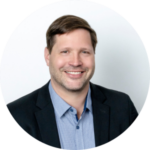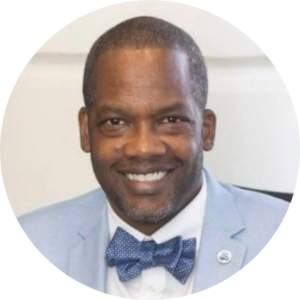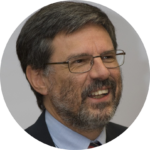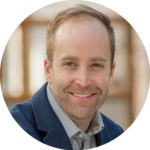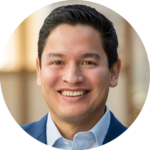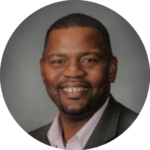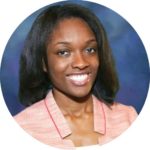UIDP Conversations
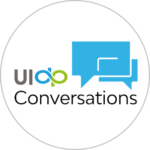 Welcome to our podcast!
Welcome to our podcast!
UIDP Conversations are candid discussions with leaders in research and development, we talk about partnership and collaboration across academia, industry and government. Listen here or subscribe on Apple Podcasts and Spotify.
Brad Lukanic, CannonDesign | April 2024
Brad Lukanic, CEO of CannonDesign, on sparking innovation across the organization, collaborating with smart clients to support their endeavors, and why an architecture firm published its first-ever children’s book, “Designing Dreams: An Official Deja the Dynamo Adventure.”
We are at our best when we’re collaborating with really smart minds while they’re trying to tackle some big things.
Go to the podcast.
Quincy Quick, Tennessee State University | March 2023
Quincy Quick is the associate vice president for research and sponsored programs and chief research officer at UIDP member organization Tennessee State University. Tennessee State, along with Fisk University and Meharry Medical College, is a local co-host for HBCU Engage, which will be held April 18-19, 2023, in Nashville. In a recent interview, Quick shared his vision for Tennessee State’s research enterprise.
We want to broaden our capacity and our capabilities to perform and deliver application-based research here at Tennessee State so the research will have a broader societal impact and benefit.
Go to the podcast.
Michael Oakes, University of Minnesota | May 2022
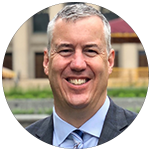 Michael Oakes, interim vice president for research at the University of Minnesota, shares some of the “secret sauce” behind its culture of entrepreneurship and what it takes to achieve $1 billion in external research investment.
Michael Oakes, interim vice president for research at the University of Minnesota, shares some of the “secret sauce” behind its culture of entrepreneurship and what it takes to achieve $1 billion in external research investment.
If we’re doing it right, our educational mission creates talent pools for corporate and national security and health and prosperity partners.
Go to the podcast.
Eric Corey Freed, CannonDesign, on sustainability as the default for design
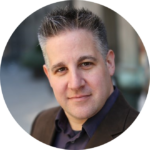 Eric Corey Freed, CannonDesign’s senior vice president of sustainability, is an architect, speaker, and thought leader in deep green buildings. He is also the author of Circular Economy for Dummies. Listen to this lively conversation about building sustainability into every design to enhance health, productivity, and societal impact.
Eric Corey Freed, CannonDesign’s senior vice president of sustainability, is an architect, speaker, and thought leader in deep green buildings. He is also the author of Circular Economy for Dummies. Listen to this lively conversation about building sustainability into every design to enhance health, productivity, and societal impact.
My massive transformational purpose is that I need to make every building a green building. Not just the ones I design, but every single building.
Go to the podcast.
Lubab Sheet-Davis, Lam Research, on nurturing innovation
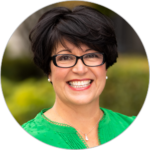 Listen as Lubab Sheet-Davis, Lam Research’s vice president, strategy & innovation, discusses Lam’s work to keep innovation humming during the pandemic, the importance of visible female leadership in the tech industry, and how to push innovation through education, innovation infrastructure, and culture.
Listen as Lubab Sheet-Davis, Lam Research’s vice president, strategy & innovation, discusses Lam’s work to keep innovation humming during the pandemic, the importance of visible female leadership in the tech industry, and how to push innovation through education, innovation infrastructure, and culture.
We believe innovation is everyone’s business. It’s not just for the technical community.
Carlos de Brito Cruz, Elsevier, on using research and data to better humanity
Listen as Carlos Henrique de Brito Cruz, senior vice president of research networks at Elsevier, discusses the role of triple helix collaboration to advance science and technology and drive economic gains. He also considers how data can help research organizations identify strengths, weaknesses, and common ground for better partnerships.
We shouldn’t be mesmerized by data. Data is very helpful; however, people’s minds are more helpful than data.
Nathan Utz, Purdue University, on repositioning to maximize university-industry engagement
Listen as Nathan Utz, vice president in Purdue University’s Office of Industry Partnerships, speaks to his new role, repositioning university-industry relations in the midst of a pandemic, and the critical importance of holistic engagement.
It’s really about figuring out how and where [our partners] are engaging today, and how we can expand and build that relationship tomorrow.
Ned Calder and Freddy Solis: Can you say what your innovation strategy is?
Innosight’s Ned Calder and Freddy Solis are pros at helping large organizations drive innovation and transformational change. In this podcast moderated by Alan Blatter of Edgewell Personal Care, they share research and observations about success elements every organization should include in their R&D strategy.
Organizations need to be more intentional about how they pursue R&D, and intentionality is the keyword there.
Charles Johnson-Bey with Muyinatu Bell on the Digital Battlespace
Listen as Charles Johnson-Bey, senior vice president for Booz Allen Hamilton, talks to Muyinatu Bell, assistant professor & PULSE Lab director at Johns Hopkins University about the digital battlespace and the need for industry and academic partnership to maximize development of emerging technologies, including data.
The fundamental challenge that defense leaders face today is not picking winners, but accurately seeing global technology trends and being able to translate and adapt.
Go to the podcast.
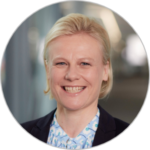 Natascha Eckert on mature U-I partnerships and promoting women in tech leadership
Natascha Eckert on mature U-I partnerships and promoting women in tech leadership
Listen as Natascha Eckert, head of university relations at Siemens, on the elements of mature university-industry partnerships, Siemens’ philosophy of managing those relationships, and taking action to promote women in tech leadership–not just talking about it.
In any partnership, it’s absolutely crucial that you create from the beginning a mutual understanding and really follow on with open and transparent communication.
Go to the podcast.
 Malcolm Skingle on the elements of successful industry-academic collaboration
Malcolm Skingle on the elements of successful industry-academic collaboration
Malcolm Skingle, GlaxoSmithKline’s director, academic liaison, discusses the critical role of industry- academic collaboration to address the world’s big scientific challenges and what it takes for industry-academic collaborations to succeed.
If you have a diverse set of collaborators, it allows you to tap into different ways of thinking, different skill sets, and this absolutely accelerates the innovation process. I’ve seen it on many, many occasions.
Go to the podcast.
Chris Au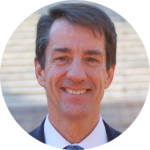 stin on the role of collaboration in translational science
stin on the role of collaboration in translational science
Chris Austin, director of the National Institutes of Health’s National Center for Advancing Translational Sciences, on the power of collaboration for translating basic science into the cures and therapies that benefit society.
If you’re really going to be innovative, you have to think about no only innovation of the science, but the innovation of your partners and the way you think about collaboration itself.
Go to the podcast.
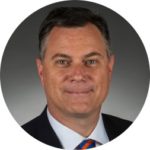 David Reed on leveraging industry partnerships
David Reed on leveraging industry partnerships
David Reed, associate provost and director of research and collections for the Florida museum of natural history at the University of Florida, describes how the university will leverage a $50 million hardware gift from industry partner NVIDIA to expand AI research and development across university programs and extend workforce development training in AI across the state.
The $50 million hardware gift is incredible and game changing for the University of Florida, but the partnership is much deeper than that. It focuses on not just the research, but teaching, outreach, and workforce development.
Go to the podcast.
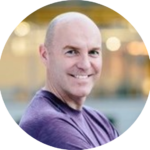 Daron Green on academic research partnerships and joint hires
Daron Green on academic research partnerships and joint hires
Daron Green, Facebook’s director of research operations and academic relations, on talent development, industry-based faculty employment, and how partnerships with university-based research broaden technology exploration and the scope of industry innovation.
We need academia to still be innovating. We need people challenging the approaches that otherwise might stagnate within companies.
Go to the podcast.
 Matt Ridley on innovation, serendipity and freedom
Matt Ridley on innovation, serendipity and freedom
In this wide-ranging discussion, Matt Ridley—author, journalist, businessman—dives into the role of serendipity and collaboration in innovation, why innovation itself is an “infinite improbability,” and how freedom is the necessary element for innovation to flourish.
Nobody does innovation from first principles, all on his own in an ivory tower, and achieves a good result. What happens is that people go out there and make mistakes and eventually get it right. You can tell the stories of the Wright brothers or Jeff Bezos and Amazon as a string of failures. They made disastrous mistakes at every step. And yet they learned from those mistakes.
Go to the podcast.
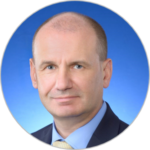 John Bamforth on open innovation and READDI
John Bamforth on open innovation and READDI
John Bamforth, director, Eshelman Institute for Innovation, University of North Carolina, Chapel Hill, on what it takes to bring the world’s top pharmaceutical researchers and industry leaders in an open-science partnership to ensure we’re ready for the next pandemic, the Rapidly Emerging Antiviral Drug Discovery Initiative (READDI).
No one would have wished, of course, for COVID-19 to have become what it is. But in another sense, it really has galvanized people to think in a more collaborative way in order to get these global problems solved.
Go to the podcast.
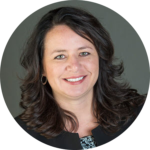 Cynthia Sweet on leadership and building relationships
Cynthia Sweet on leadership and building relationships
Cynthia Sweet, the University of Pittsburgh’s associate vice chancellor for economic partnerships, on partnership intentionality, building internal and external relationships, and leading through influence rather than authority.
There are so many people working towards partnerships, and we don’t control all of those activities or the actions of others. And so you really have to rely on the relationships you build internally and externally. You lead through influence rather than authority.
Go to the podcast.
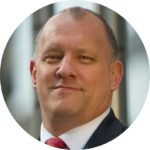 Doug Maughan | August 2020
Doug Maughan | August 2020
Doug Maughan, office head for NSF’s Convergence Accelerator Program, on flexibility, new topics of research interest, and what happens in that niche between basic research and commercialization.
We’ve seen a whole range of partners—large multinationals, all the way down to small startups. And what is really quite interesting is that all of them can participate and play a role. And that’s not a normal environment.



